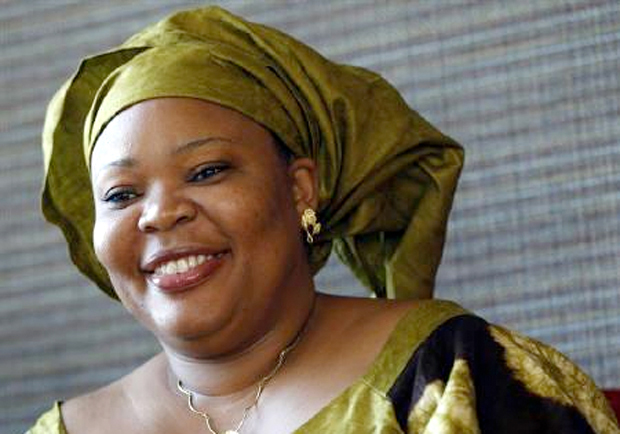Leymah Gbowee experienced the power of prayer after leading a reconciliation effort to eventually end her country’s civil war. In 1993, a dream led the peace activist to call a gathering of women that eventually formed the Christian Women’s Peace Initiative. The women prayed and fasted for the end of violence, denying their husbands sexual relations until the country reached a ceasefire. Former Liberian President Charles Taylor’s regime eventually fell, and Gbowee’s friend Ellen Johnson Sirleaf now leads the country’s democratic government. Gbowee, a mother of six who splits her time between different countries as she promotes peace, attends an independent evangelical church in Ghana and a Lutheran church in Liberia. Her book, Mighty Be Our Powers (Beast Books), describes how her Christian faith motivated her to continue to fight injustice. CT spoke with Gbowee about the reconciliation efforts that led to her winning the Nobel Peace Prize.
How did you connect the role of reconciliation to faith?
Reconciliation is predominantly about healing brokenness, applying a balm to invisible scars. Even in situations where an offender apologizes, the process of reconciliation is not complete until you can forgive. The ability to forgive is connected to a higher power. Reconciliation is like two people on a journey. You become tied together emotionally. You are chained together. If you want to progress, you have to offer forgiveness. And if the person takes the first step and repents, but you say, “I will not let go,” that person is free but you are attached to a chained ball.
Why did you feel that prayer needed to be a part of the process?
There’s something special about prayer itself that changes things. It consoles you in your faith and open doors. Reconciliation is often a spiritual process. If someone offends you deeply, it’s too difficult for any man to heal you, so you have to encounter a higher power to receive that forgiveness. If you are the offender, even if the person you affected forgives you, you have to encounter something else to be able to forgive yourself. In order for reconciliation to take place, you have to be reconciled with God, yourself, and those who offended you.
Is there something that particularly positions Christians to foster reconciliation?
If you delve deep into every faith you can find provisions for reconciliation. But if you look at the words of Jesus, you see Christians are especially taught to be reconciled, not passively or in a cowardly way. Reconciliation is speaking truth to a particular situation, going up to someone and saying, “You offended me. It hurt me. These are the consequences that your actions led to, but I am able to let go.”
Why did you seek out women specifically in your efforts?
Who are the ones in our society who understand young people? The women. Who are the ones that young people would be more respectful to? The women. Who are the ones who are able to reach some of the worst hardened criminals and killers when no one else can reach them? The women. I think the positioning of women, based on their understanding of the context, the situation, and the individuals makes them the most likely people to solve problems here.
How should Christians think about aiding African nations?
Organizations can easily get involved in the politics of the world and forget their key mission of going into communities. I’m not saying that you should forget about your own problems. But we can ask, how did Christ interact with people? He did not amass wealth for himself, but he gave generously to the needy. Does a pastor really need to own his own private jet? Hands-on, long-term humanitarian efforts could be a way to prick the conscience of those who are living well.
Do you sense resistance to faith-based involvement from other countries?
Resources can be best used by identifying communities in need. I don’t think there is a problem with groups deciding how they want to help, as long as they don’t come in with an imperialist attitude. For example, if you want to help a community with agricultural needs, you don’t want your first encounter to be, “I have seeds for people to plant,” without understanding the culture. People need to go to the community to find out what they really need before they can invest in those needs.
Copyright © 2012 Christianity Today. Click for reprint information.
Related Elsewhere:
Mighty Be Our Powers is available from ChristianBook.com and other book retailers.
Previous articles about Leymah Gbowee and Liberia include:
Breaking Through the Glass Sidewalk: Why Every City Needs Women Influencers | How women uniquely lead neighborhood transformation. (February 7, 2012)
Pray the Devil Back to Hell | Thank goodness for unassuming little documentaries like ‘Pray the Devil Back to Hell,’ which tell us not only that change can happen in the world, but how it can be done. (November 7, 2008)
Bringing Order from Chaos | Churches help with refugees, hunger, and the lasting trauma brought on by war. (November 1, 2003)









